The Texas Biomedical Forum is an independent, non-profit association dedicated to promoting the life-saving work of Texas Biomed. The Forum sponsors one-year pilot projects that help scientists prove concepts that can lead to subsequent and often significant federal funding of research.
The 2021 faculty Forum grant recipients are:
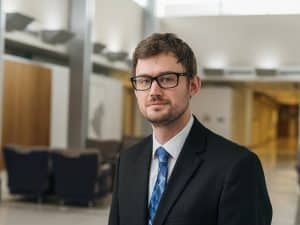
Ian Cheeseman, Ph.D. will develop data to support the exploration of intrahost mutation. Using a cohort of asymptomatically infected individuals sampled over six months, he will identify mutations in the parasite genome arising within single people. He will then ‘replay’ evolution in vitro by generating vast libraries of mutations in the same parasite gene and explore how these mutants are recognized by the same patient sera. The results from this grant will define the mechanism by which mutations in parasite surface antigens are generated and selected to evade immune responses.
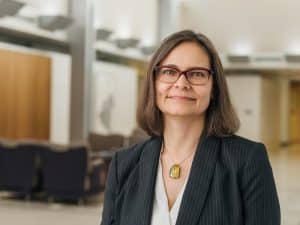
Joanne Turner, Ph.D. will test the hypothesis that SARS-CoV-2 infection causes long-term physiological, metabolic and immune dysfunctions that persist after viral clearance, including immunity to other seasonal viruses. She will determine the long-term adverse effects of COVID-19 using the K18 ACE2R transgenic mice, and the impact of prior SARS-CoV-2 infection on immunity to respiratory infections.
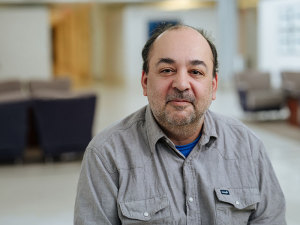
Luis Martinez-Sobrido, Ph.D. will test the hypothesis that a single-cycle infectious (sci)-based approach can be implemented to develop safe, immunogenic and protective live attenuated vaccines to combat COVID-19 disease caused by SARS-CoV-2 infection. He will generate and characterize in vitro sciSARS-CoV-2 virus, and assess the safety, immunogenicity and protective efficacy in K16 ACE2 transgenic mice.
The 2021 Staff Scientist Forum grant recipients are:
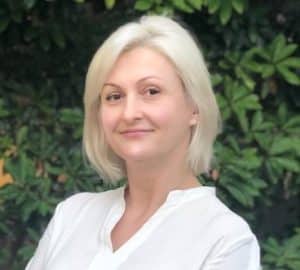
Olena Shtanko will test the hypothesis that EBOV and MARV transform host cell migration properties to facilitate virus spread. She will characterize migration properties if EBOV and MARV challenged murine macrophages, and assess host resistance to infection in mice devoid of functional macrophages.
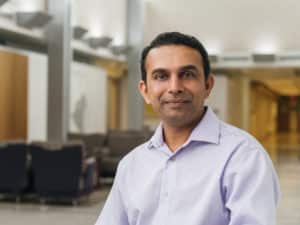
Rajesh Thippeshappa will test the hypothesize that rBCG vaccination will induce both specific and non-specific beneficial immune responses, thereby providing better protection against SARS-CoV-2 infection. He will use rBCG carrying SARS-CoV-2 structural genes to employ an rBCG prime and protein boost vaccination approach to induce SARS-CoV-2 specific immune responses.
The 2021 post-doctoral scientist Forum grant recipients are:
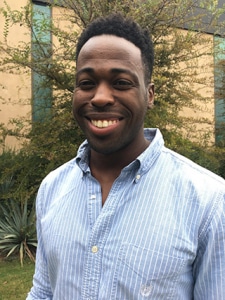
Colwyn Headley (PI: Turner) will test the hypothesis that mito-transfer in CD4+ T cells isolated from old mice improves adaptive immunity against pathogens, and decreases excess inflammation that stems from CD4+ T cell dysregulation in the elderly. He will examine the impact of mitochondrial transplantation in T cells from the elderly, and determine whether mito-transfer of T cell improved immunity in mice.
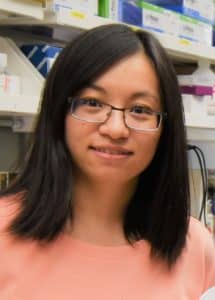
Xue Li/Neal Platt (PI: Anderson) will test the hypothesis that long-read sequencing of parental malaria parasites and a small subset of progeny, together with de novo assembly to generate cross-specific reference sequences, will improve our ability to explore previously inaccessible genetic variants responsible for biomedically important traits. They will test their hypothesis using malaria parasites and schistosomes. (Dr. Platt is not pictured)
The 2021 Cowles postdoctoral fellowship recipient is:
Susanta Pahari (PI: Schlesinger). Susanta will test the hypothesis that chronic lung inflammation in old age is associated with a unique inflammatory signature in AMs which paradoxically leads to early control of M.tb, while setting the stage for subsequent enhanced growth and bacterial dissemination. He will determine the impact of inflammation on the phenotype and function of alveolar macrophages through microscopy, flow cytometry, functional assays and RNA-seq. The Cowles Fellowship is for one year.
The 2021 Graduate fellowship recipient is:
Alyssa Schwami (PI: Torrelles). Alyssa will test the hypothesis that differences in the cell envelope components of drug-resistant Mycobacterium tuberculosis (M.tb) strains influence their infectivity and virulence profiles in vitro and in vivo. She will use expertise in biochemistry and microbiology to characterize the total lipid and lipoglycan profiles on the cell envelopes of 24 M.tb clinical isolates that range from drug-susceptible to extremely drug-resistant. The Douglass Fellowship is for 2 years, with a review of productivity after 1 year.